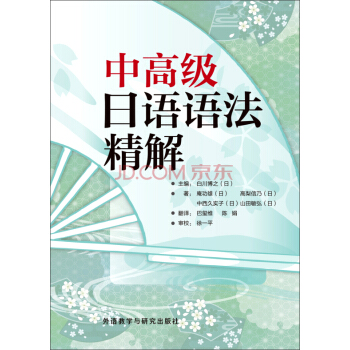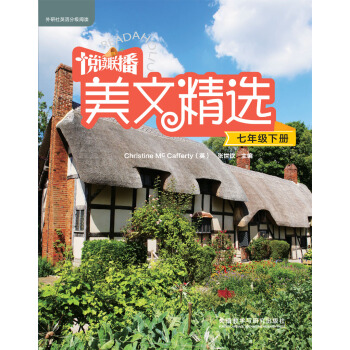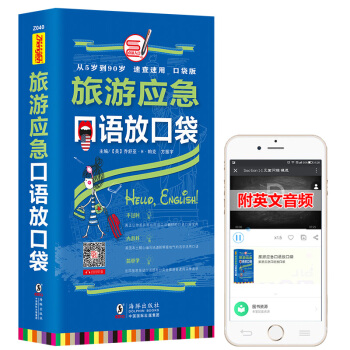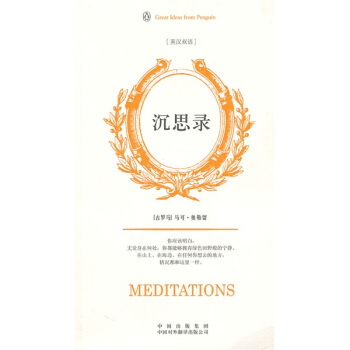![西游记故事(英文版) [Journey to the West With the Stone Monkey ]](https://pic.windowsfront.com/10678468/58ce8319N4664cb65.jpg)

具体描述
内容简介
该系列图书精选自中国古代经典小说名著,为方便外国读者理解,专门请有关专家对原著进行缩写改编,内容涵盖原著中有代表性的情节和故事,通过这些可读性强的故事传达出其中蕴含的中国传统文化精髓,吸引国外读者的阅读和探究兴趣,出版后特别受到国外读者喜爱。
作者以另一种通俗易懂的文字加漫画的形式叙述了唐僧四人西天取经的过程。
This is the amazing story of Sun Wukong, known in the West as the Monkey King. He is the principal character of this classic Chinese epic novel in which he accompanies the monk Sanzang on the journey to retrieve Buddhist sutras from India.Wukong possesses immense strength, being able to wield his 8,000 kg. magic weapon with ease. He has superb speed, travelling 54,000 kilometers in one somersault. Sun knows 72 transformations, which allow him to transform into various animals and objects. He is a skilled fighter, capable of holding his own against the best generals of heaven. Each of his hairs possesses magical properties, and is capable of transforming into a clone of Sun Wukong himself, or various weapons, animals, and other objects. He also knows various spells in order to command wind, part water, conjure protective circles against demons, freeze humans, demons, and gods alike.In this journey with the monk Sanzang, Wukong is accompanied by Bajie and Sandy, lovable if flawed characters, both of whom offered to accompany the monk to atone for their previous crimes.
作者简介
Y. C. PAN was born in Taiwan in 1935. Heemigrated to Toronto,
Canada in 1962 andenrolled at the University of Toronto. Afterworking as an economist, Pan embarked on acareer with the government and the CanadianInternational Development Agency.The "Stone Monkey" fable is based on hisrecollections as a young parent telling storiesto his three growing children who were alwayshis wide-eyed audience.
内页插图
目录
PART I
Chapter 1: The Birth of the Magic Monkey
Chapter 2: The Stone Monkey Becomes King
Chapter 3: Monkey King is Struck by the Notion of Mortality
Chapter 4: The Monkey King Seeks Immortality
Chapter 5: Sun Wukong Learns Immortality
Chapter 6: Sun Wukong Reestablishes his Kingdom
Chapter 7: Sun Wukongs Kingdom Thrives
Chapter 8: Sun Wukong Acquires the Weapon of his Choice
Chapter 9: Sun Wukong Raids the Underworld
Chapter 10: Sun Wukong Gets a Job in Heaven
Chapter 11: Sun Gets his Title of Heavenly Grand Fairy
Chapter 12: Sun Steals the Heavenly Peach and Longevity Pills
Chapter 13: Heavenly Army Attacks Sun
Chapter 14: The Buddha Vanquishes Sun Wukong
Chapter 15: The Buddha Wishes to Save the Souls of Mankind ..
Chapter 16: Kuanyins Recruitment Tour
Chapter 17: Birth of the Holy Monk
Chapter 18: Chinese Emperor Tours the Underworld
Chapter 19: Monk Chen Volunteers to Go West
Chapter 20: Sanzangs (Monk Chen) Journey Starts
Chapter 21: Sun WukongJoins Sanzang
Chapter 22: Sanzang Collects More Disciples
Chapter 23: The Theft of the Robe and the Submission of th Black Bear
Chapter 24: Zhu Bajie (Di Baggai) Joins
Chapter 25: Sha Wujing (Sandy) Joins, Completing the Pilgrim Team
Chapter 26: Gods Test the Teams Integrity and Resolve
Chapter 27: Encounter With Baby-Shaped Fruit Tree
Chapter 28- Wukong is Banished After Killing the Demon of Ble Skeleton
Chapter 29: Sun Goes Home
Chapter 30: Yellow Robe Demon Defeats Bajie and Sandy
Chapter 31: Sun Wukong Rejoins the Pilgrim Team
Chapter 32: Troubles With Gold Horn and Silver Horn
PART 2
Chapter 1 : The Dead King in the Well
Chapter 2 : Reviving the Dead King
Chapter 3 : Sun Wukong Gets Burned by the Red Infant
Chapter 4 : Kuanyin Tames the Red Infant
Chapter 5 : The Black Water Demon Captures Sanzang
Chapter 6 : The Dragon King Tames the Black Water Demon
Chapter 7 : The Monks of Chechi Kingdom Enslaved by Demons
Chapter 8 : Sun Wukong, Bajie and Sandy Enjoy the Feast Disguised as Deities
Chapter 9 : Encounter with Tiger, Deer and Goat Demons
Chapter 10 : The Contests Against the Three Demons
Chapter 11 : Crossing the Trans-Heaven River
Chapter 12 : Bajie Beats Up the King of Divine Sense
Chapter 13 : The King of Divine Sense Freezes the River and Captures Sanzang
Chapter 14 : Kuanyin Retrieves the Gold Fish in a Bamboo Basket
Chapter 15 : Old Tortoise Ferries the Pilgrims Across the River
Chapter 16 : The One-Horned Monster with a Platinum Bracelet
Chapter 17 : Fighting the One-Horned Monster
Chapter 18 : Sanzang and Bajie Get Pregnant
Chapter 19 : The Amazon Queen Wants to Marry Sanzang
Chapter 20 : The Trouble in Peepah Cave
Chapter 21 : Sun Wukong is Banished for Killing Bandits
Chapter 22 : The Fake Sun Wukong Harasses the Pilgrims
Chapter 23 : The Flaming Mountain Obstructs the Journey
Chapter 24 : Sun Wukong Tries to Borrow the Banana-Leaf Fan
Chapter 25 : The Fight With the Buffalo King
Chapter 26 : The Treasure Thief: a Nine-Headed Demon
Chapter 27 : Thorns Block the Path to the West
PART 3
Chapter 1 : Fake Buddha Captures Sanzang
Chapter 2 : The Killing of the Boa Constrictor
Chapter 3 : Rescuing a Kidnapped Queen
Chapter 4 : Adventure in the Cobweb Cave
Chapter 5 : The Three Demon Masters
Chapter 6 : Encounter with the Blue Lion, White Elephant, and the Condor
Chapter 7 : Rescue of One thousand, One Hundred and Eleven Babies
Chapter 8 : Seduction in the Bottomless Cave
Chapter 9 : The Buddhist-Killing Kingdom
Chapter 10 : The Demon with a Pestle
Chapter 11 : Producing Rainfall
Chapter 12 : Showing Off the Weapons and Tempting a Demon
Chapter 13 : The False Buddha Stealing Oil
Chapter 14 : The False Princess Tries to Marry Sanzang
Chapter 15 : Tycoon Kou Entertains the Pilgrims
Chapter 16 : The Pilgrims Enter the Territory of the Western Heaven
Chapter 17 : The Sutras Obtained
Chapter 18 : Returning to Chang-An
Chapter 19 : Mission Accomplished, Five New Deities Created
EPILOGUE
精彩书摘
CHAPTER 18
Chinese Emperor Tours the Underworld
In China, it was a period known as the Tang Dynasty (618– 907), during which China had extended its territory beyond the Great Walls and South China Sea. This was also the period during which China opened itself to a vast number of foreigners and accepted their cultures.
During the early Tang Dynasty, the most illustrious period was when Emperor Taizong was on the throne (626 – 649). The entire Chinese Empire was at peace, and people enjoyed unprecedented prosperity.
At the time, there was a wood-cutter and a fisherman who were friends. They would meet every evening when the fisherman came back from the sea and the wood-cutter from the mountain. They enjoyed their drinks and conversations together. One evening, as they were about to part after the daily drinks, the fisherman said, “Well, good night and have a nice day tomorrow, though I know your mountain is not quite as nice a place as my sea.”
The wood-cutter replied, “Why! I think your sea is not as nice as my mountain.”
The fisherman said, “My sea is beautiful, where one can see the sun rise and set on the horizon, and the moon casting its romantic rays; where one can feast on fish and shrimps and octopus; where the scenery is wide open and makes one forget the trivial things of the world.”
The wood-cutter said, “But my mountain is infinitely variable; in the summer’s heat, it provides cool respite; the sun gives life to the trees, and the moonbeams inspire one’s meditative mood; the meats of animals taste better than fish, shrimps or octopus; and the cloud-shrouded mountain tops make one feel other-worldly.”
The two continued arguing about the virtues of their places for another hour. And at the end, the wood-cutter said, “All right, my friend, we just agree to disagree. Good night and take care. I don’t want to experience ‘one less friend’s face amongst the crowd’.
The fisherman said, “What an inauspicious thing you say! But don’t fear, I am fully informed about the weather so there is no danger of being struck by unexpected storms.”
The wood-cutter asked, “How so?”
The fisherman replied, “There is a fortune-teller of great wisdom who can predict the weather precisely, so I consult him every morning before putting out to the sea.” And the two parted.
This conversation was overheard by one of the retainers of the Dragon King of the River Jing. He went and reported it to his master, who decided to teach the fortune-teller a lesson.
The Dragon King went to the fortune-teller’s stall and asked for the forecast for the next day. The fortune-teller gave him 3,348 points of rain at 3:00 p.m. The Dragon King was taken aback. He himself did not know about it. He asked the fortune-teller, “Are you quite sure?”
The fortune-teller said, “Of course.” The Dragon King answered, “I will come and take down your sign if your forecast is wrong.” And he went back to his river palace.
As he arrived, there was an imperial instruction ordering him to provide 3,348 points of rain at 3:00 p.m. the next day. He was in a panic. One of his advisors suggested that he provide 3,340 points at 2:00 p.m., so he would have carried out the instruction but with a slight alteration. He took that advice and provided 3,340 points at 2:00 p.m.
前言/序言
EPILOGUE
“Journey to West” is considered one of China’s greatest masterpieces in its popular literature. It is interesting to see why this book of fantasy gained such stature in Chinese popular culture.
It appeals to young and old because of the fantastic adventures, and because of the personalities of the protagonists: the Master for being upright if somewhat stiff and humorless; the monkey for being imaginative and loyal if rebellious; the pig for his sense of humor and cynicism; and Sandy for his stolid nature but solid loyalty.
But it is also a vivid description of Chinese society where there was no rule of law.
While I was delighted that my children enjoyed it in their childhood and later, it was not without some trepidation that I provide this retelling.
Even if one suspends one’s disbelief, the stories in this book are full of contradictions. As I was reading it for the first time some sixty years ago, I would find the story curiously unsatisfying when the monkey snuck into a demon’s cave, stealthily and unobtrusively. Naturally rooting for him, I would say to myself, “Now you are in the demon’s cave and he is asleep. Take out your magic stick and crush him into a meatball!” When the monkey failed to do so, I found it frustrating.
Also, when the monkey said he could not carry his Master across the river because the Master was flesh and blood, I wondered how demons could carry him so easily to kidnap him.
I must confess that I judged the ethically objectionable behavior of the characters from the perspective of Western values. I was deeply offended by the way laws were so arbitrarily ignored or bent for the convenience of the powerful.
How come the Dragon King had to be beheaded for altering the amount of rainfall, while the underworld minister could get away with altering the length of life for Emperor Taizong?
The punishments meted out for some minor offenses were vastly out of proportion, while in some cases the offenses might have been very serious but were simply forgiven because the offenders were connected to powerful gods.
The society described in the book is the Chinese society of the Ming Dynasty, where corruption and an arbitrary ‘justice’ system made the lives of ordinary Chinese a living hell. In some measure, this arbitrariness and corruption continues today.
Perhaps this vivid description of Ming China is one of the book’s hidden virtues. The reactions of our children were interesting. They enjoyed the stories for their action, and considered the rest as ‘silly and childish’ without any sociological or moralistic wisdom. Perhaps that is the best reaction and the soundest critique of the story, and this book.
YCP
用户评价
这本书的行文风格极其流畅,即便是对于一个初次接触东方神话体系的读者来说,也几乎没有阅读上的障碍。叙事者仿佛是一位技艺精湛的说书人,他懂得在恰当的时候加快节奏,营造紧张的氛围,又懂得在适当的地方放缓笔调,细致描摹山川景物或角色内心微妙的情绪变化。我注意到,作者在处理那些复杂的佛教和道教概念时,并没有采取生硬的解释,而是巧妙地将它们融入到情节的发展和人物的对白之中,使得知识的传达变得自然而然,仿佛读者是在与角色一同历经磨难,从而领悟了这些哲理。语言的选择上,既保留了原著中那种古朴的韵味,又用现代的语汇进行了润饰,达到了一个非常微妙的平衡点,既不显得故作高深,也不流于粗浅。尤其欣赏那种充满画面感的描述,比如描述妖魔的形貌或法术的神通时,笔触极其细腻,几乎能让人在脑海中构建出清晰的三维立体影像。这种叙事上的高超技巧,使得即便是那些耳熟能详的桥段,也焕发出了新的生命力,每一次阅读都像是在重温一次精心编排的舞台剧。
评分与其他流行的冒险故事相比,本书最大的魅力或许在于它对于“坚持”这一主题的深刻阐释。整个故事线索清晰,围绕着一个宏大而看似遥不可及的目标——取得真经——展开。然而,构成这部史诗的,并非那些惊天动地的法力对决,而是无数个微小却坚韧的“不放弃”的瞬间。无论是面对看似无法逾越的妖魔屏障,还是遭遇内部成员的信念动摇,团队总是在一次次的失败和挫折之后重新聚集力量,继续前行。这种对毅力的颂扬,是跨越文化和时代的普世价值。它用最奇幻的设定,讲述了一个最朴素的道理:真正的考验不在于你拥有多大的能力,而在于你面对困境时选择退缩还是坚持。读完之后,那种心潮澎湃的感觉,不是因为见证了多少神迹,而是因为被这种近乎偏执的、对目标的执着所深深感染,它让人审视自己生活中的那些“小小的取经路”,并从中汲取继续前行的勇气。
评分这本书的包装设计着实令人眼前一亮,那色彩的搭配和字体选择,透露着一种古典而又充满活力的气息,仿佛在向你诉说着一段古老的传奇即将展开。初拿到手时,我就被封面那幅意境深远的插画所吸引,它没有过度渲染战斗的场面,而是着重刻画了人物在旅途中的神态,尤其是那位主角,眼神里既有初出茅庐的懵懂,又隐隐透着一股不屈的韧劲。内页的纸张质感也非常考究,拿在手里沉甸甸的,翻阅时能感受到一种对阅读体验的尊重。装帧的工艺也相当扎实,看得出是经过精心制作的成品,而非草草付梓的普通读物。我尤其欣赏的是,它在保持传统神话韵味的同时,也融入了现代印刷的精美细节,比如章节的页眉设计,简洁而不失典雅,让人在阅读疲劳时,目光也能得到片刻的舒展。整体而言,从视觉和触觉上,这本书已经成功地为接下来的故事奠定了一个高品质的基调,让人迫不及待想深入探索其内容,这种初次接触带来的愉悦感,对于一本经典名著的再版来说,是至关重要的第一步。它不像市面上那些廉价的版本,拿在手里总感觉少了些许“分量”,而这本,拿在手中就像是握着一个值得珍藏的艺术品。
评分这部作品在人物刻画上的深度远超我的预期。我原本以为这只是一个简单的“打怪升级”的故事,但深入阅读后才发现,每个主要角色都有其复杂而多面的性格侧面。例如,团队中的那位“行者”,他的反叛精神和对规则的挑战欲,与他骨子里的忠诚和对师父的敬畏,构成了极具张力的内在冲突,这使得他的形象远比扁平化的“神猴”要丰满得多。而其他几位师兄弟,他们的缺点和优点也都被刻画得入木三分,他们的挣扎、抱怨、甚至偶尔的自私,都让这些神话人物变得无比“人性化”。这种对人性的深入挖掘,使得读者能够很容易地在这些超自然的存在中找到共鸣点。更妙的是,配角群体,那些形形色色的神仙、妖精、凡人,也都有着独特的动机和生存逻辑,他们绝非只是推动情节的工具人,而是活生生的、有着自己世界观的个体。正是这种群像的成功塑造,使得整个西行之路不仅是地理上的跋涉,更是一场深刻的、关于自我认知与救赎的哲学之旅。
评分这本书在文化背景和寓意层面的丰富性,使得它具有极高的重复阅读价值。我发现,即便是对其中典故略有了解的读者,每一次重读也会有新的发现。初读时,我们关注的是故事的奇趣和冒险的刺激;再读时,便会开始留意其中对于社会结构、官僚体系的讽刺,那些天庭和地方神祇间的权力制衡与人间的官场何其相似,充满了对虚伪和腐败的隐晦批评。而更深层次的解读,则指向了心灵的修炼和个体的成长,每一个磨难都可以被视为是人性弱点的一种具象化体现,而战胜它,就是一次精神上的超越。这种多维度的解读空间,正是经典之所以为经典的关键所在。它像一个多面棱镜,从不同的角度折射出不同的光芒,无论是作为娱乐性的神魔小说,还是作为富含哲理的寓言,它都能完美胜任,充分展现了其文学遗产的强大生命力与深远影响。
评分Yun-Chong Pans retelling of the story, originally crafted by the Ming Dynasty story-teller, Wu Chengen, will captivate children with its fantasy, and delight young and old with its layers of reality and satire grounded in Chinese, Indian, Greek, and Old Testament mythology.
评分挺好挺好挺好
评分中国人翻译,买来看看热闹。
评分不知道有没有用,反正老婆一定要买。
评分给外孙子的生日礼物
评分很好呀,用券买的超级划算!
评分纸张一般,印刷一般,内容不全,总共才38章内容,应该是删减版。
评分不错不错不错不错不错不错不错不错不错不错不错不错不错
评分Yun-Chong Pans retelling of the story, originally crafted by the Ming Dynasty story-teller, Wu Chengen, will captivate children with its fantasy, and delight young and old with its layers of reality and satire grounded in Chinese, Indian, Greek, and Old Testament mythology.
相关图书
本站所有内容均为互联网搜索引擎提供的公开搜索信息,本站不存储任何数据与内容,任何内容与数据均与本站无关,如有需要请联系相关搜索引擎包括但不限于百度,google,bing,sogou 等,本站所有链接都为正版商品购买链接。
© 2026 windowsfront.com All Rights Reserved. 静流书站 版权所有

![德语基础词汇详解 [Grundwortschatz fur Anfanger] pdf epub mobi 电子书 下载](https://pic.windowsfront.com/10840480/3b836d65-1ab8-4e5b-866a-f73ac9977742.jpg)










![三国演义故事(英文版) [Romance of the Three Kingdoms] pdf epub mobi 电子书 下载](https://pic.windowsfront.com/10958039/58ce7d8fNeca91d28.jpg)


![清华英语自然拼读故事屋A2 [4-12岁] pdf epub mobi 电子书 下载](https://pic.windowsfront.com/11230971/rBEQYFGJwx8IAAAAAAV8gr8a8jMAAAmWwI3V-YABXya575.jpg)




